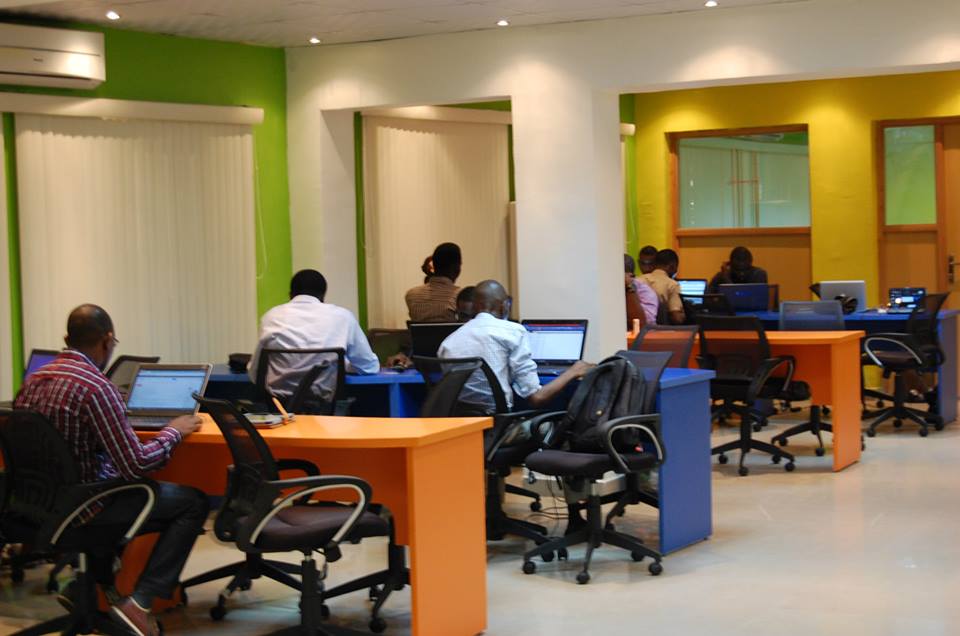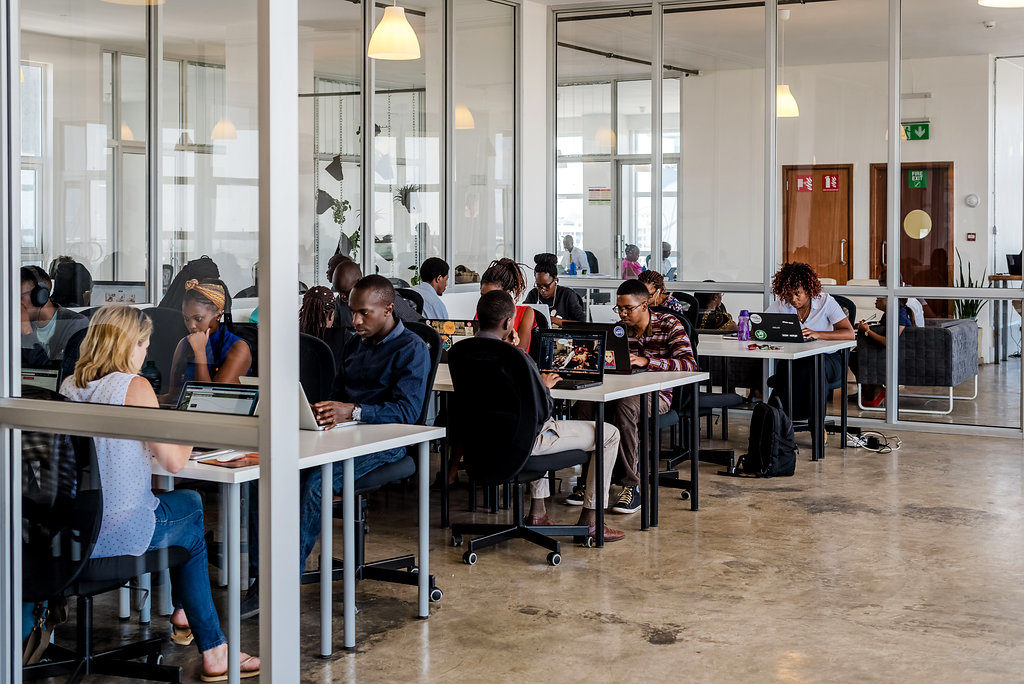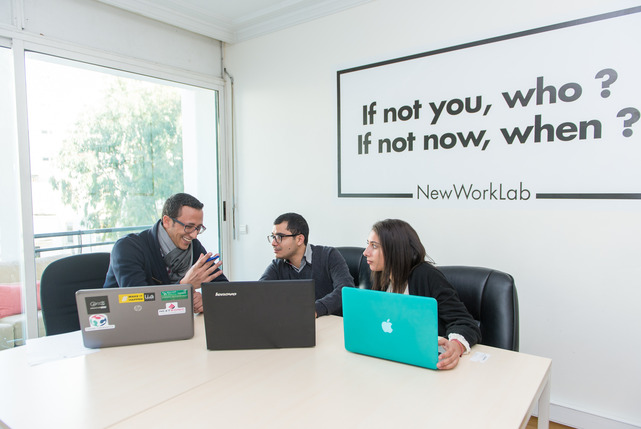Rising Tech Hubs in Africa
As the first world becomes increasingly digitized, a large number of corporations are looking to Africa for their next expansions. Several other companies are entirely focused on the continent’s growth. All told, the time for a digital revolution in the cradle of humankind is now.
Politicians are supporting the idea too. Presidents Cyril Ramaphosa of South Africa, and Yoweri Museveni of Uganda, for example, have both encouraged technological development, recognizing the substantial economic and other benefits it could bring.
Africa’s Digital Potential
In many ways, what makes the continent so perfect for new technology is countries’ historic lack of infrastructure. This is seen in the way that transferring money via mobile phones took off almost 15 years ago, with M-PESA allowing money to be sent from phone to phone years before Venmo was available.
When more than 80% of Africans’ mobile telephones but only about 28% have a bank account, this solution is simple and elegant. The innovative thinking required is also clearly illustrated. Internet use is up by an average of 20% across the continent, according to the “Digital in 2018” report by Hootsuite and We Are Social.
This is the highest rate of Internet penetration in the world, but it is still predominantly because of mobile technology. Many people don’t have the money to buy desktop computers, but they can afford mobile phones quite easily. The business models that worked in Silicon Valley, therefore, might not be as successful. Developers need to consider the particular socio-economic and other factors of each country and create technology that meets its needs.
Apps for education, agriculture, and business could drive serious political, social and economic growth. At the same time, greater connectivity and access to resources will put African designers and innovators on equal footing with their first world counterparts, and allow them to compete on a global stage. Clearly, when viewed from any angle, the continent’s technology scene is on the verge of exploding.
The Importance of Tech Hubs
Start-ups have always been essential to the digital world. Start-up ecosystems, or networks of start-ups and their support structures, interact with each other to develop the existing companies and create new ones. Tech hubs, the incubators, accelerators and collaborative spaces that foster the startups, are thus quite obviously intrinsic to these ecosystems.
So we know the hubs are important, and the number of these centers in Africa jumped from 314 in 2016, to 442 in 2018. The interest in the continent’s digital advancement is clearly reflected in these figures, and it is coming from everywhere.
Executives from Google, Facebook and Alibaba have visited various countries to launch products and scout for opportunities, while local tech hubs are also driving the industry. Earlier in 2018, Google opened its first accelerator outside of the United States, Launchpad Africa, in Lagos. The support and mentorship will be similar to what is offered in Silicon Valley, modified to cater to the African context.
Senegal, Ghana, Côte d’Ivoire, Uganda, and Zimbabwe have all seen more local tech hubs launched over the past two years, while the highest growth was seen in Nigeria. Here, the number shot up from 23 in 2016 to 55 in 2018. This puts the country on par with South Africa, which currently has 59 active hubs. There’s a lot of growth overall, but most of it is concentrated in South Africa, Nigeria, Egypt, Kenya, and Morocco.
To take a closer look at some of the accelerators and incubators in these African Silicon Valleys, keep reading.
South Africa: RLabs

Based in Cape Town, RLabs organizes intense workshops on entrepreneurship and technology for promising startups. They also provide them with up to $20,000. The award-winning company focuses on combining social works with digital development; every project that they fund is designed to uplift communities and improve lives.
Nigeria: The Co-Creation Hub

The Co-Creation hub is in Lagos, where it holds events that have come to be known as Tech-Ins. Software designers come together over two days and work to create mobile-and web-based solutions to Nigeria’s social challenges.
The organization has also partnered with Facebook since May 2018, after Mark Zuckerberg himself visited the premises. This is the social media platform’s first African collaborative space, intended to help individuals learn and exchange ideas. Seven more are to be rolled out across Nigeria, and will also be connected to existing local hubs.
Egypt: Flat6Labs

Cairo Egypt – January 15:
Participants piece together their new business ideas in the offices of Flat6Labs in Cairo, Egypt on January 15. The members have been building their small business ideas with a 3 month cycle taking advantage of the space, and mentorship in the Giza office.
(Photo by David Degner / Getty Images)
Founded in Cairo in 2011, Flat6Labs now also has offices in Tunis, Jeddah, Beirut, Abu Dhabi, and Bahrain. The company is both an accelerator and a seed money investor and has invested a total of $50 million in startups across the MENA (the Middle East and North Africa) region over the past seven years.
More than 180 portfolio companies, 100 corporate and governmental partners and 400 local and international coaches and mentors are affiliated with Flat6Labs. The population of Egypt, young and tech-mined, is considered by many to be its most excellent resource, and Business Development Manager Nour Ahmadein says the massive pool of talented developers is the best part of doing business in Cairo.
Kenya: Nairobi Garage

In the capital city of Kenya, Nairobi Garage offers fast Internet speeds and access to reliable electricity, both of which can be challenges in the country. The center also holds tech-based events, workshops, and conferences to help entrepreneurs gain new skills and connections.
Garages have also been established in Cape Town and Lagos, where similar activities drive innovation and business growth. Besides, they have funded several projects. The parent company describes its vision as Africa becoming a technology powerhouse.
Morocco: New Work Labs

New Work Labs provides an important co-working space for Morocco’s technology entrepreneurs. They also offer programmes and workshops and act as a start-up accelerator. Insiders predict that the number of hubs in the country will also grow exponentially in the next few years, thanks to the active efforts of local authorities and investors. An accurate representation of what is happening in the rest of Africa, Morocco’s tech start-ups are also closely linked with mobile operators.





















